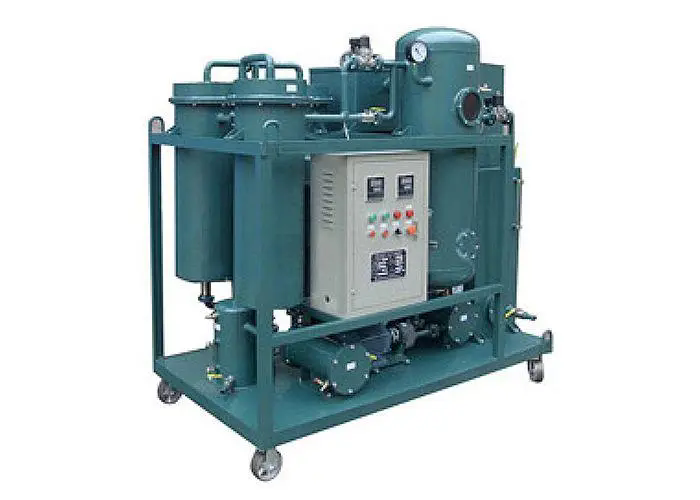E-mail seo@sino-purification.com

Time:2024-12-23 11:26:43 Reading volume:
Transformer oil plays a crucial role in ensuring the efficient and safe operation of transformers. It serves primarily as an insulating medium and a coolant to dissipate heat generated during the transformer’s operation. Over time, however, transformer oil can degrade due to various factors such as electrical stress, heat, and external contaminants, making it necessary to filter the oil periodically. Here are the key reasons why transformer oil needs to be filtered:

1. Remove Contaminants (Solid Particulates)
- Dirt and Dust: Over time, dust, dirt, and other solid particles can find their way into transformer oil. These particulates can cause abrasion and wear on internal transformer components, such as windings and bushings, leading to increased maintenance costs and reduced lifespan.
- Sludge Formation: Contaminants like sulfur compounds can react with the oil and form sludge, which can clog filters, degrade oil quality, and impair the transformer’s insulating and cooling properties.
2. Control Moisture and Water Contamination
- Moisture Absorption: Transformer oil is hygroscopic, meaning it can absorb moisture from the surrounding environment. Moisture in the oil can significantly reduce its insulating properties, leading to the potential for electrical failures or short circuits. If moisture levels exceed acceptable limits (typically above 10-15 ppm), it can cause the transformer to fail under electrical stress.
- Hydrolysis of Oil: Water in the oil can also cause chemical reactions, leading to the formation of acids that degrade the oil and damage the transformer. The filtering process helps to remove excess moisture, maintaining the oil’s insulating capacity.
3. Remove Dissolved Gases
- Gas Formation: Over time, electrical discharges (such as partial discharge, arcing, or short circuits) can break down the oil and produce gases like hydrogen, methane, carbon monoxide, and ethylene. These gases can accumulate in the oil and compromise the dielectric properties of the oil, making it less effective as an insulator.
- Degassing: By filtering and degassing the oil, these harmful gases can be removed, restoring the oil's dielectric strength and preventing transformer failures.
4. Prevent Acid Formation and Neutralize Acidity
- Acid Formation: Over time, transformer oil can break down due to heat, oxidation, and electrical stresses, leading to the formation of acids. These acids can damage transformer insulation materials and corrode metal components, ultimately affecting the efficiency and safety of the transformer.
- Filtration to Neutralize Acidity: Filtration helps remove harmful acidic compounds from the oil, preventing corrosion of internal components and maintaining the integrity of the transformer.
5. Maintain Dielectric Strength
- Electrical Insulation: Transformer oil is used for its excellent insulating properties. The presence of contaminants such as moisture, gases, and particulate matter can degrade the dielectric strength of the oil. The lower the dielectric strength, the more prone the transformer is to electrical breakdowns.
- Maintaining Insulating Properties: Filtering the oil helps maintain its ability to insulate, which is vital for the safe operation of the transformer and the prevention of electrical faults.
6. Improve Cooling Efficiency
- Heat Dissipation: The oil in a transformer not only insulates but also helps cool the system by transferring heat away from the windings. Contaminants like sludge or solid particulates can obstruct the oil’s flow and hinder its ability to cool the transformer efficiently.
- Efficient Cooling: By filtering out impurities, the oil can flow more freely, improving heat dissipation and preventing overheating of the transformer.
7. Extend Transformer Life
- Preventing Early Failure: Regular filtration helps prevent the accumulation of contaminants and gases that can lead to transformer failure. By maintaining the oil quality, the risk of insulation breakdown, overheating, and mechanical failure is reduced, leading to longer transformer life.
- Reducing Maintenance Costs: Regular oil filtration reduces the need for costly repairs or even premature transformer replacement, thus lowering the overall operating cost.
8. Environmental Considerations
- Recycling and Reclamation: Filtering transformer oil helps recover and reuse the oil, which can be beneficial for both economic and environmental reasons. Oil filtration can extend the service life of the oil, allowing it to be reclaimed and recycled, thereby reducing waste.
- Contaminant Disposal: Filtration helps to remove harmful contaminants that may pose environmental risks. Properly filtered and maintained oil minimizes the risk of leakage or spillage that could pollute the environment.
9. Prevent Electrical Failures
Avoiding Transformer Failures: As contaminants like moisture, sludge, and gases accumulate in the oil, they increase the likelihood of electrical faults. Transformer oil filtration is critical for maintaining the reliability of the transformer and ensuring it can handle electrical loads without risk of breakdown.
Arc Prevention: High moisture content and gas buildup can lead to arcing within the transformer, which is a leading cause of transformer failures. Filtering out these contaminants helps prevent arcing and other electrical faults.
10. Compliance with Industry Standards
Many industries and utilities have regulations or standards that require periodic inspection, testing, and filtering of transformer oil to ensure that the transformer remains in good condition. Filtration is part of compliance with these standards and ensures the transformer continues to meet operational requirements.
Transformer oil filtration is vital for:
Maintaining insulation and cooling properties.
Extending the lifespan of the transformer.
Ensuring safe, efficient operation.
Preventing electrical and mechanical failures.
Regular filtration helps ensure that the oil remains free from contaminants, maintains its dielectric strength, and extends the operational life of the transformer. It’s a critical part of transformer maintenance to ensure both reliability and safety.
Would you like to know more about specific oil filtration techniques or maintenance schedules for transformers?